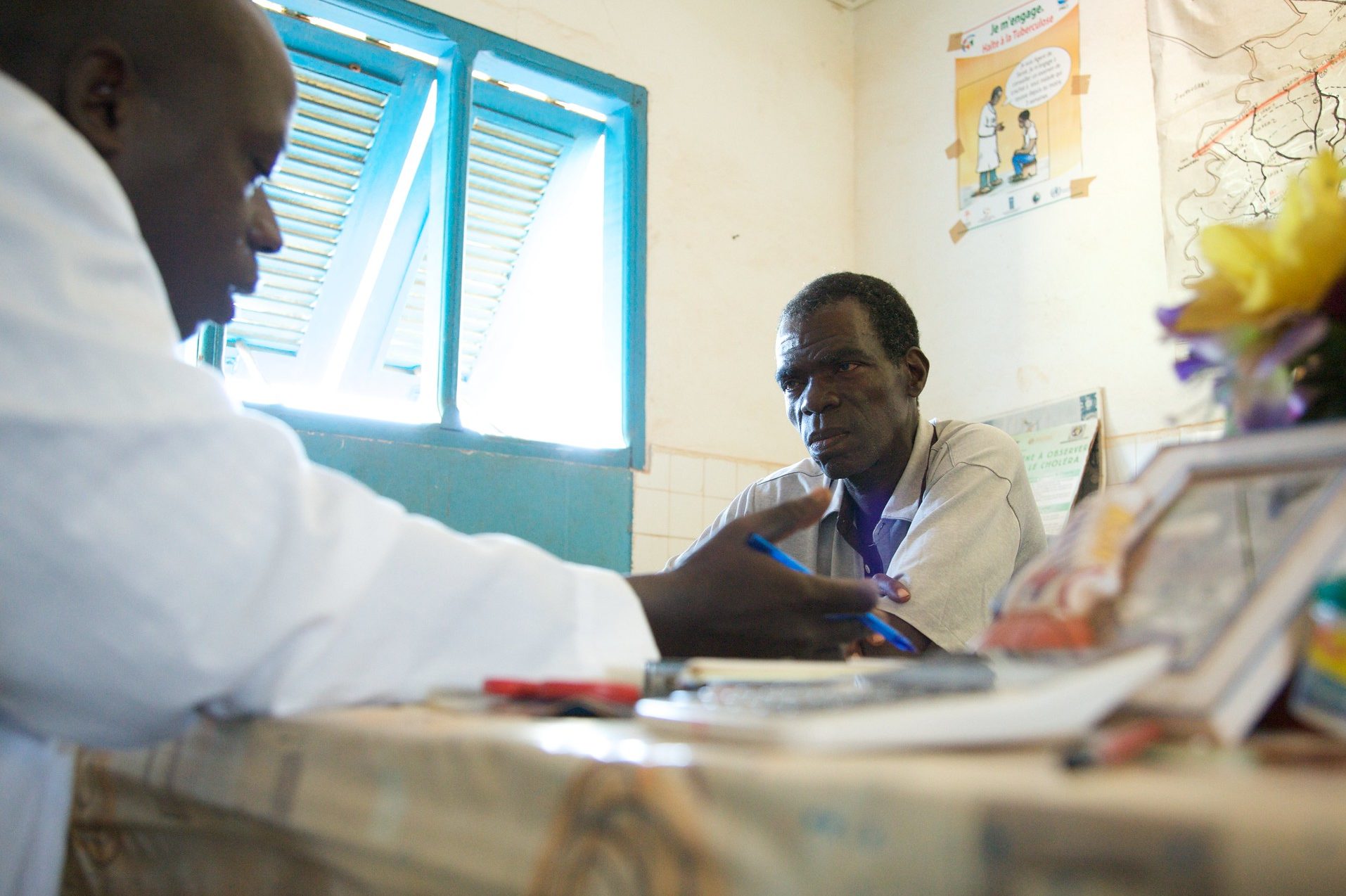In the Northern regions of Cameroon, ICAP has been supporting community-based HIV testing. Despite existing strategies to identify cases, testing among key and target populations, such as men, remains a challenge.
In this region, traditional authorities are well respected in their communities and often supported by equally known and respected local government officials, also known as cabinet members. To improve recruitment for HIV testing among men, ICAP devised the ‘Chefferie Testing Strategy,’ which engages local traditional leaders to support community sensitization and encourage HIV testing among their constituents.
ICAP carried out this strategy as part of the Programmatic Support Award (PSA), funded by the U.S. Centers for Disease Control and Prevention. The PSA project provides technical assistance to Cameroon’s Ministry of Public Health to scale up comprehensive HIV care and treatment across 74 health facilities of Northern Cameroon.
Different models of the Chefferie Testing Strategy were piloted across three health facilities in Touboro, Tcholliré, and Lagdo districts. Each facility had specific testing targets: 300 men in Touboro; 500 men working in the nearby gold mine in Tcholliré; and 200 men from the lakeside community in Lagdo. Through this community outreach strategy, ICAP anticipated a 2% increase in identification of HIV-positive cases.
In Touboro district, health care workers supporting the strategy reached out to the traditional ruler of Pandjama village and his cabinet members to carry out community sensitization activities. ICAP shared the importance of HIV testing among men with the village’s traditional leader and his cabinet members, who agreed to support outreach activities. In response, the chief hosted community members who wanted to get tested for HIV, check their blood pressure and blood sugar, and distribution of condoms in his home.
In Lagdo district, the health facility’s community liaison informed their traditional leader of the importance of HIV testing services for at-risk persons and to limit the spread of HIV. The local authority supported the identification of neighborhoods with high-risk groups and hosted the staff while they conducted testing in the community.
After receiving administrative clearance in Tcholliré district, facility staff met with the Chief of Bandjouri village, which harbors a gold mine. With the Chief’s support, local community health workers reached out to men working at the gold mine and encouraged them to get tested.
Overall, the Chefferie Testing Strategy obtained a much higher yield than average of HIV-positive tests in the Northern region and increased uptake of HIV testing among men, key and target populations, and community members at large. The support of traditional leaders reduced the stigma associated with HIV testing and encouraged community members to participate. Moving forward, ICAP will use the lessons learned from this strategy and apply it to other regions of Cameroon where testing gaps remain.
“This innovative testing strategy has allowed us to reach many more key and target populations, including men,” said Gabriel Ekali, ICAP’s country director in Cameroon. “Through the PSA project, we plan to continue these efforts to improve our testing outcomes and reach those most affected by the HIV epidemic in Cameroon.”
About ICAP
A major global health organization that has been improving public health in countries around the world for nearly two decades, ICAP works to transform the health of populations through innovation, science, and global collaboration. Based at Columbia Mailman School of Public Health, ICAP has projects in more than 30 countries, working side-by-side with ministries of health and local governmental, non-governmental, academic, and community partners to confront some of the world’s greatest health challenges. Through evidence-informed programs, meaningful research, tailored technical assistance, effective training and education programs, and rigorous surveillance to measure and evaluate the impact of public health interventions, ICAP aims to realize a global vision of healthy people, empowered communities, and thriving societies.








